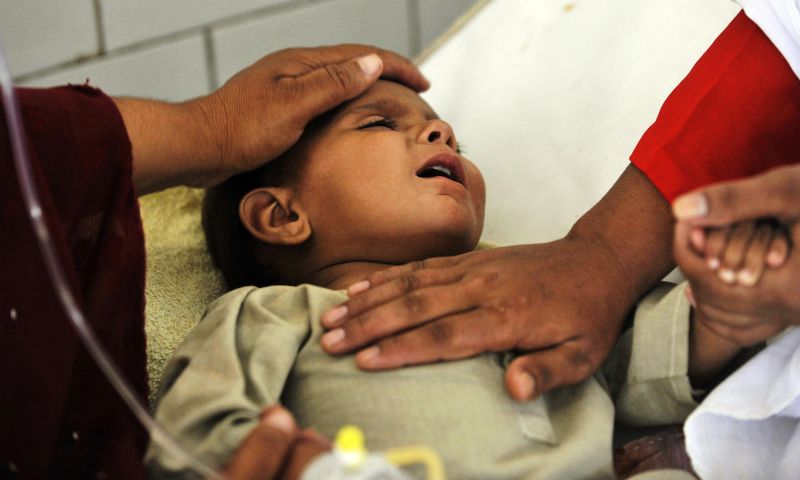LAHORE: Health experts estimate that Pakistan experiences more than one million cases of diarrhoea every month, sadly resulting in the loss of around 110 children daily. Timely administration of zinc supplements could potentially save many of these young lives.
A seminar, titled “The Significance of Zinc for Health,” recently occurred at a local hotel in Karachi. This event was a collaborative effort between the Pakistan Zinc Society and a local pharmaceutical company. Eminent speakers at the seminar included Professor Nadeem Qamar, who serves as the Executive Director of Cardiology, Haroon Qasim, the Managing Director of the local pharmaceutical company Pharmavo, Chief Operating Officer Nadeem Rahmat, and other experts.
During the seminar, healthcare authorities stressed the importance of WHO-pre-qualified zinc product manufacturing facilities in Pakistan, representing a significant stride towards reducing reliance on foreign pharmaceutical products. This development is expected to make zinc products more affordable and accessible to both domestic and international companies through local firm Pharmivo. Ultimately, this will conserve valuable foreign exchange and, most importantly, contribute to saving more children’s lives by preventing deaths caused by diarrhea.
Dr. Abdul Bari Khan commended the WHO’s pre-qualification of zinc medications produced by a Pakistani company as a highly positive advancement for the nation. He pointed out that after the devastating floods in Sindh and Balochistan last year, millions of children suffered from diarrhoea, with many lives saved through the provision of zinc supplements. These supplements are a crucial tool in protecting children from diarrhoea and malnutrition.
Dr. Khan further emphasized that UNICEF and other international donor agencies often purchase zinc products from multinational pharmaceutical companies. However, the recent WHO pre-qualification of a local plant means that these products can now be procured at a fraction of the previous cost, enabling broader distribution across the country.
During the seminar, Mr. Khan encouraged the pharmaceutical industry to also focus on the local production of medications for tuberculosis, HIV, and cancer. He highlighted that international organizations like the Global Fund spend millions of dollars on purchasing these drugs from international pharmaceutical giants. By manufacturing these drugs locally, Pakistan can retain a significant amount of foreign exchange.
Dr. Khan further said that Pakistani pharmaceutical companies managed to export drugs and products worth $713 million the previous year. With these recent developments, it is expected that Pakistani product exports may reach one billion dollars, marking a significant achievement.
He stressed the preventability of most diarrhoea-related deaths and underscored the importance of ensuring clean water, oral rehydration solutions (ORS), and zinc supplements for children suffering from diarrhoea. He also highlighted the need for enhanced collaboration between the industry and medical universities.
Haroon Qasim expressed his commitment to fostering a healthier society in Pakistan and considered the WHO’s pre-qualification of Pharmavo’s manufacturing plant as a significant achievement.























